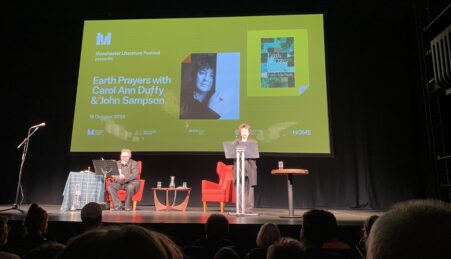The launch of Left Unity, a campaign to form a new party on the left of British politics, began a process that has needed to happen for a long time, but past mistakes must be avoided, argue Rachel Archer and Josh Davies.
The Left is weak. It lacks the influence to challenge austerity, much less to pose a meaningful alternative. The Labour Party is right wing, union leaders dodge key fights and the campaigns of the last decade have largely been and gone without building any real roots. Whilst the situation seems grim, there is also a feeling that the left needs to do something different and learn from its mistakes. Left Unity offers one of the ways this can happen. Furthermore, it contains the potential to bring many people into that process.

If we want to reverse the trend of the Left’s recent history then we need to be aware of the scale of the task before us – building roots in communities, providing attractive and engaging politics, organising workers in precarious employment, reversing rampant privatization and bringing about a cultural change, whereby political engagement is a part of people’s everyday experience. Of course, this will be a slow process and we shouldn’t expect quick fixes – Left Unity is only a part of this process.
We would like to see from Left Unity a departure from the failed and disengaging projects of the past. We want Left Unity to provide a space for those to the left of The Labour Party, whilst offering a genuine alternative to what politics, and political involvement, currently look like. Our methodology – how we actually do politics – should be at the centre of our politics. The current debate over platforms seems to miss this point. We would like to move the debate forward, placing participation at its centre.
The recent decision that Left Unity’s November conference should discuss policies and platform should be welcomed, but also met with some caution. The three different platforms that have emerged as discussion pieces, and will inevitably be voted on, will share many qualities. However, over the coming months, the political differences that exist within Left Unity will be stratified around these documents. These differences are real, of course, and the varying support for each platform provides an overall representation, somewhat, of the British Left.
Unfortunately, the similarity between them is that they each repeat the mistakes of the past. They are pre-written documents, created – with the best intentions – by seasoned activists, given to a delegation to vote on, then wheeled out to the working class. This is a fundamental bad habit we have to break. The question is, therefore, can it be done differently?
It has to be said that all three documents contain worthwhile ideas and policies. The Class Struggle Platform argues for the importance of rank and file organisation within the union movement, in order to hold bureaucrats to account, this is critically important with strike after strike being sold out. Union leaders have absolutely no idea about the reality of the members they represent – if they did, they would not sell off strikes. This is a difficult argument to put to a broad organisation. They should be commended for their relentless rhetoric, arguing for working class organisation free from bureaucratic control.
Similarly, the Socialist Platform asserts that, in fact, we need socialism. It argues against repeating past mistakes, whereby socialists would hide their true beliefs in order to attract popular support. The call for an explicit attack on capitalism – rather than just austerity – is an important argument. It recognises that the austerity project is part of a wider, international capitalist attack on the working class – arguing that socialism is the key to defeating capitalism, and that socialists should not be afraid to declare their allegiance, nor their intentions.
The Left Platform policy, although very different from the other two, contains great merits. Its broadness, under attack by many, ensures that even if any program, platform, or policy is adopted at the November conference, it is open enough to continue to be developed. Its explicit nod to feminists, environmentalists and social justice activists makes this an attractive platform.
However, as mentioned, all three platforms are pre-written documents. All fall into the trap of producing a potential programme that has a track record of failure. The Class Struggle Platform, for example, argues for what is necessary, but remains another incarnation of transition-obsessed theory. Although transitional demands need to be made, it is presumptuous to assert them now. Might working class people not have transitional demands of their own? Demands that differ from those presented here?
The Socialist Platform represents a very limited programme. Again it is presumptuous. The argument for socialism needs to be won – and won through real life experience and education.
The Left Party platform models itself on the left parties of Europe, such as Front de Gauche and Syrizia. Alas, these models, although potentially electorally successful, haven’t proven themselves as serious barriers to austerity. Austerity continues to tear through France, and especially Greece. Is this the party we want? Superficially appealing but, in reality, powerless to halt the brutality of capitalism.
The main mistake that Left Unity is making in the November conference is in continuing down a well-trodden path. It is a wasted opportunity to call a national conference where pre-written documents are discussed, amended, debated and then voted upon. For the many, many people that have gotten involved in Left Unity, from Cornwall to Aberdeen, this will be either off-putting or alienating. A program of intent needs to emerge, but we should not be so impatient as to allow it to be prescribed.
Why not try something different? Rather than a conference based on the model inherited from the labour unions, whereby documents are given, Left Unity would be wise to design and facilitate a conference where ideas, priorities and demands emerge from a day’s discussion. Of course, it is unlikely that the perfect programme would emerge from one day – further work would be required. But wouldn’t it be worth a try? This is what we mean by participatory politics, whereby the forms of political discussion model the content. The way that we conduct our political activity is our politics. Many have argued that ‘this is the best way we have of doing it’, but that fails to use political imagination. There are many ways to do politics, some of these ways have not even been imagined yet.
The point of a programme is that it can, eventually, lead the working class to power. Who better then to decide what is needed than the working class? A programme for change should not be dictated – it should be something that necessarily emerges out of political engagement.
Josh Davies is an English and American Lit student, staunch left winger, compulsive TV watcher and spicy food lover. You can find him on Twitter @_joshdavies









Leave a reply